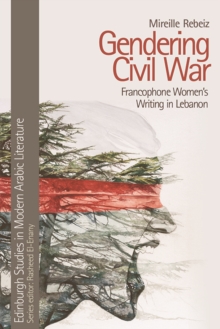
War and Occupation in Iraqi Fiction Hardback
by Ikram Masmoudi
Part of the Edinburgh Studies in Modern Arabic Literature series
Hardback
Description
This book examines tangible experiences of war and occupation in recent Iraqi fiction.
The last three decades in Iraqi history can be summarized in these words: dictatorship, war and occupation.
After the fall of Saddam's regime Iraqi novelists are not only writing about the occupation and current disintegration of Iraq but are also revisiting previous wars that devastated their lives.
Ikram Masmoudi examines how recent Iraqi fiction about war depicts the Iraqi subject in its relation to war, coercion, subjugation and occupation.
The theoretical concept of the Homo Sacer, the killable, as defined by Giorgio Agamben, is used to explore the lives and the experiences of different war actors such as the soldier, the war deserter, the camp detainee and the suicide bomber depicted in in their 'bare life' as sacred men doomed to death in the necropolitical context.
It explores fictional works by a new generation of leading Iraqi authors such as Ali Badr, Shakir Nuri, Najm Wali and Hdiya Hussein.
It provides a historical contextualisation of the Iraqi novel before and after the fall of Saddam Hussein's regime. It presents an analytical and critical study of a selected corpus of novels about war and occupation in Iraq.
It explores tangible experiences of war and occupation - such as desertion, camp detention and suicide bombing - in the Iraqi novel.
Information
-
Out of stock
- Format:Hardback
- Pages:256 pages
- Publisher:Edinburgh University Press
- Publication Date:19/06/2015
- Category:
- ISBN:9780748696550
Other Formats
- Paperback / softback from £15.65
- EPUB from £14.16
Information
-
Out of stock
- Format:Hardback
- Pages:256 pages
- Publisher:Edinburgh University Press
- Publication Date:19/06/2015
- Category:
- ISBN:9780748696550










